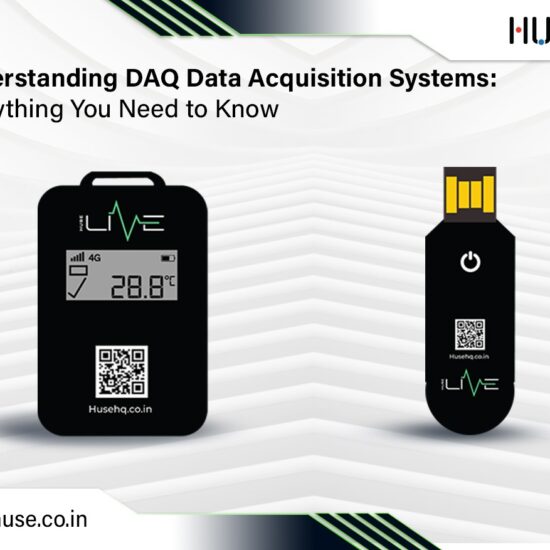Industries across the globe depend on accurate, real-time data to make critical decisions.
A key technology that powers this process is data acquisition systems (DAQ). These systems collect, measure, and process data from the physical world, offering businesses valuable insights into their operations.
DAQs are integral to a wide range of applications, from monitoring machine performance in factories to tracking environmental conditions.
In this blog, we’ll explore the core principles of data acquisition systems, their components, and how they help industries optimize their performance and decision-making.
What is a Data Acquisition System?
DAQs involve a combination of hardware and software that works together to collect data, often in real-time, from sensors or other measurement instruments. These systems are designed to convert analog signals into digital data, making it easier to store, process, and analyze.
Key components of a DAQ system include:
To understand how DAQs work, it is important to know its primary components:
1) Data Logger: A data logger is a device that collects and stores data from the system. A digital data logger is often used in modern DAQs due to their efficiency and ability to store large amounts of data.
2) Sensors and Transducers: These devices are responsible for converting real-world physical quantities into electrical signals. For example, a temperature sensor detects temperature changes and converts them into a voltage signal, which the DAQ system can process.
3) Signal Conditioning: This stage involves modifying the electrical signal from the sensor into a form that the DAQ can efficiently handle. Signal conditioning may include amplification, filtering, or noise reduction.
4) Analog-to-Digital Converter (ADC): Once the signals are conditioned, they need to be converted into digital signals. The ADC performs this conversion, allowing the data to be analyzed on a computer or other display device.
5) Software: A data acquisition system relies on software to visualize, analyze, and interpret the collected data. This software often provides tools for statistical analysis, graphing, and reporting.
The Role of Digital Data Loggers in Data Acquisition
Digital loggers are an important component of many daq data acquisition systems. These devices collect and store data from sensors over time, allowing businesses to track changes in parameters such as temperature, humidity, or pressure. These loggers offer several benefits, including:
➞ Accurate Data Collection
They provide precise and reliable data, reducing the risk of errors.
➞ Long-Term Storage
They can store large amounts of data, making them ideal for monitoring long-term trends.
➞ Ease of Use
These data loggers are often easy to use, requiring minimal setup and maintenance.
What Are The Advantages of Using Data Acquisition Systems?
Investing in DAQs offers several benefits for businesses, including:
1.Improved Decision-Making
With real-time data, businesses can make informed decisions, respond to issues quickly, and improve operational efficiency.
2.Cost Savings
By identifying inefficiencies and potential problems early, daq data acquisition help reduce maintenance costs and improve resource allocation.
3.Scalability
Modern DAQs, including wireless systems, are scalable and can be customized to meet the growing needs of businesses.
4.Improved Accuracy
DAQs eliminate manual data collection errors, ensuring precise measurements and reliable results.
How To Choose the Right Data Acquisition System?
When selecting data acquisition systems, it is important to consider factors such as:
Firstly, know your application requirements. Determine the type of data you need to collect and the conditions under which the system will operate.
The second thing in the list is scalability. Select a system that can scale as your needs evolve.
Third, you need to check the data logger’s capabilities. Ensure the digital data logger can handle the volume and type of data you need to record.
The fourth consideration is the ease of integration. Choose systems that are compatible with your existing hardware and software.
Lastly, check for support and services. Work with a provider that offers robust technical support and maintenance services.
How Does HUSE Support Your Data Acquisition Needs?
We understand the critical role DAQs play in today’s industries. Our focus is on providing cutting-edge solutions, including digital data logers and wireless DAQs, to meet the unique requirements of our clients.
Our systems are designed to ensure seamless integration with your operations, offering accurate, real-time data collection and analysis. Whether you’re in manufacturing, environmental monitoring, or any other sector, HUSE offers solutions that adapt to your needs.
Final Thoughts
Data acquisition systems are the backbone of modern industries, enabling accurate and efficient data collection for better decision-making. By leveraging the advanced components mentioned above, these systems have transformed how businesses operate.
Choosing the right system is critical, and partnering with a trusted provider is important. Invest in HUSE. We offer the expertise and technology you need to streamline your data collection processes and make more informed decisions.
Explore our range of DAQs and see how we can help streamline your operations. Visit our website to learn more and take the first step toward smarter data management.





